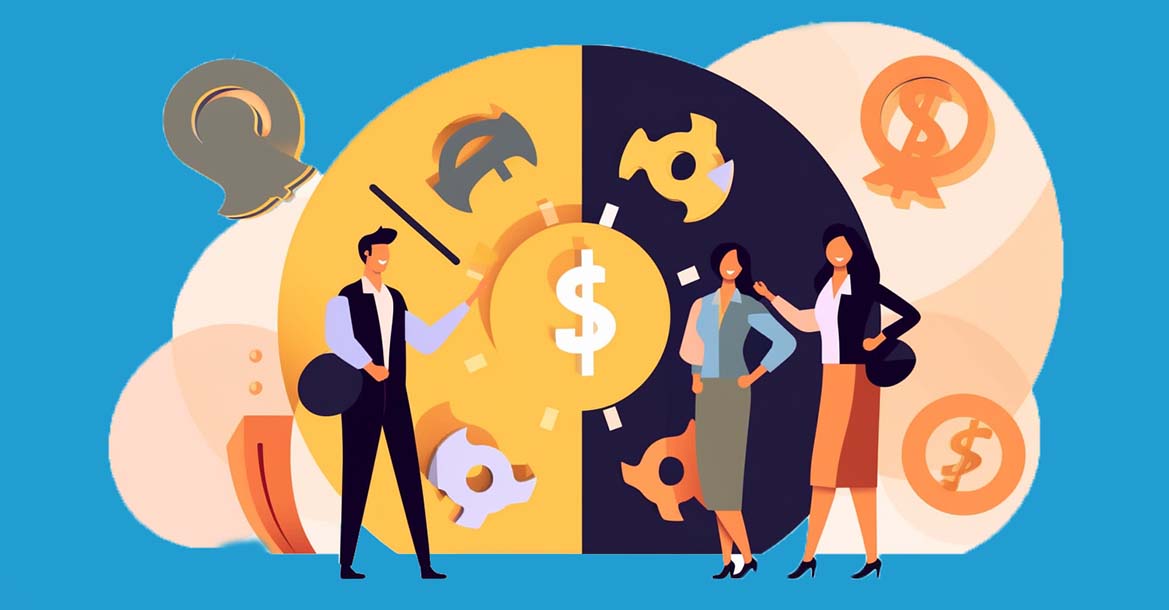Break the Cycle of Debt and Build a Better Future

Debt management is a crucial aspect of personal finance. Whether you're struggling with credit card debt, student loans, or other forms of debt, it's important to have a plan in place to manage your debt effectively. In this article, we'll explore the basics of debt management, provide tips for getting out of debt, and discuss the importance of taking control of your finances.
Understanding Debt Management
Debt management involves managing your debts effectively to avoid falling deeper into debt. It involves creating a budget, making a debt repayment plan, negotiating with creditors, and finding ways to reduce your debt load.
One of the first steps to effective debt management is creating a budget. A budget helps you understand your income and expenses, so you can identify areas where you can cut back and put more money towards your debts.
Tips for Getting Out of Debt
Getting out of debt takes time and effort, but it's worth it in the long run. Here are some tips for getting out of debt:
- Create a Debt Repayment Plan: A debt repayment plan is a schedule that outlines how you'll pay off your debts over time. Start by making a list of your debts, including the amount owed and the interest rate. Then, prioritize your debts based on interest rate and pay off the highest interest debt first.
- Negotiate with Creditors: If you're struggling to make your debt payments, consider negotiating with your creditors. You may be able to negotiate a lower interest rate or a payment plan that works for you.
- Find Ways to Reduce Your Debt Load: There are many ways to reduce your debt load, including consolidating your debts, refinancing your loans, and finding ways to lower your expenses.
- Avoid Taking on New Debt: To get out of debt, it's important to avoid taking on new debt. Cut up your credit cards, avoid taking out new loans, and focus on paying off your existing debts.
Taking Control of Your Finances
Taking control of your finances is essential to effective debt management. Here are some tips for taking control of your finances:
- Create a Budget: A budget helps you understand your income and expenses, so you can identify areas where you can cut back and put more money towards your debts.
- Live Within Your Means: Living within your means is essential to effective debt management. Avoid overspending, and focus on saving money and paying off your debts.
- Save for Emergencies: Unexpected expenses can derail your debt management plan. Save for emergencies by setting aside money each month in an emergency fund.
- Invest in Your Future: Investing in your future is essential to achieving your financial goals. Consider investing in a retirement account, a college savings plan, or other investment vehicles to build long-term wealth.
Debt management is an essential component of personal finance. By managing your debts effectively, creating a budget, and taking control of your finances, you can regain financial stability and achieve your goals. Remember to create a debt repayment plan, negotiate with creditors, find ways to reduce your debt load, and avoid taking on new debt to get out of debt. And don't forget to create a budget, live within your means, save for emergencies, and invest in your future to take control of your finances for the long term..
Discover a wealth of resources to answer all your debt management questions by clicking on the links. Our carefully curated collection of in-depth guides, expert insights, and tips will provide you with the knowledge and tools you need to master debt management and achieve your financial goals.
Find Your Way to Financial Freedom with Debt Management
Build a Better Future with Our Debt Management Strategies
The Ultimate Guide to Getting Out of Debt: Strategies and Tips
How to Create a Debt Repayment Plan That Works for You
The Snowball Method vs. The Avalanche Method: Which Debt Repayment Strategy Is Best?
How to Negotiate with Creditors for Better Repayment Terms
A Guide to Understanding and Managing Different Types of Debt
7 Tips for Staying Motivated While Paying Off Debt
How to Avoid Common Debt Traps and Stay Debt-Free
The Importance of Prioritizing High-Interest Debt
A Guide to Debt Consolidation: Pros, Cons, and Strategies
How to Manage Student Loan Debt: Repayment Options and Strategies
The Impact of Medical Debt on Your Finances and How to Manage It
How to Deal with Debt Collection Agencies: Know Your Rights
The Role of Bankruptcy in Debt Management: What You Need to Know
How to Pay Off Credit Card Debt: Strategies for Success
A Guide to Setting and Achieving Debt-Free Goals
How to Create an Emergency Fund While Paying Off Debt
The Pros and Cons of Debt Settlement: Is It Right for You?
How to Manage Debt in Retirement: Strategies and Tips
The Importance of Creating a Budget to Manage Debt
How to Manage Debt as a Small Business Owner
The Impact of Divorce on Debt and How to Manage It
A Guide to Managing Debt During Unemployment or Financial Hardship
The Psychology of Debt: How to Overcome Emotional Barriers to Debt Repayment
How to Deal with Overwhelming Debt: Seeking Professional Help
The Impact of Debt on Your Credit Score and How to Improve It
How to Manage Debt in a Marriage: Tips for Couples
The Benefits of Refinancing Student Loans: Is It Right for You?
How to Manage Debt After the Death of a Spouse or Loved One





